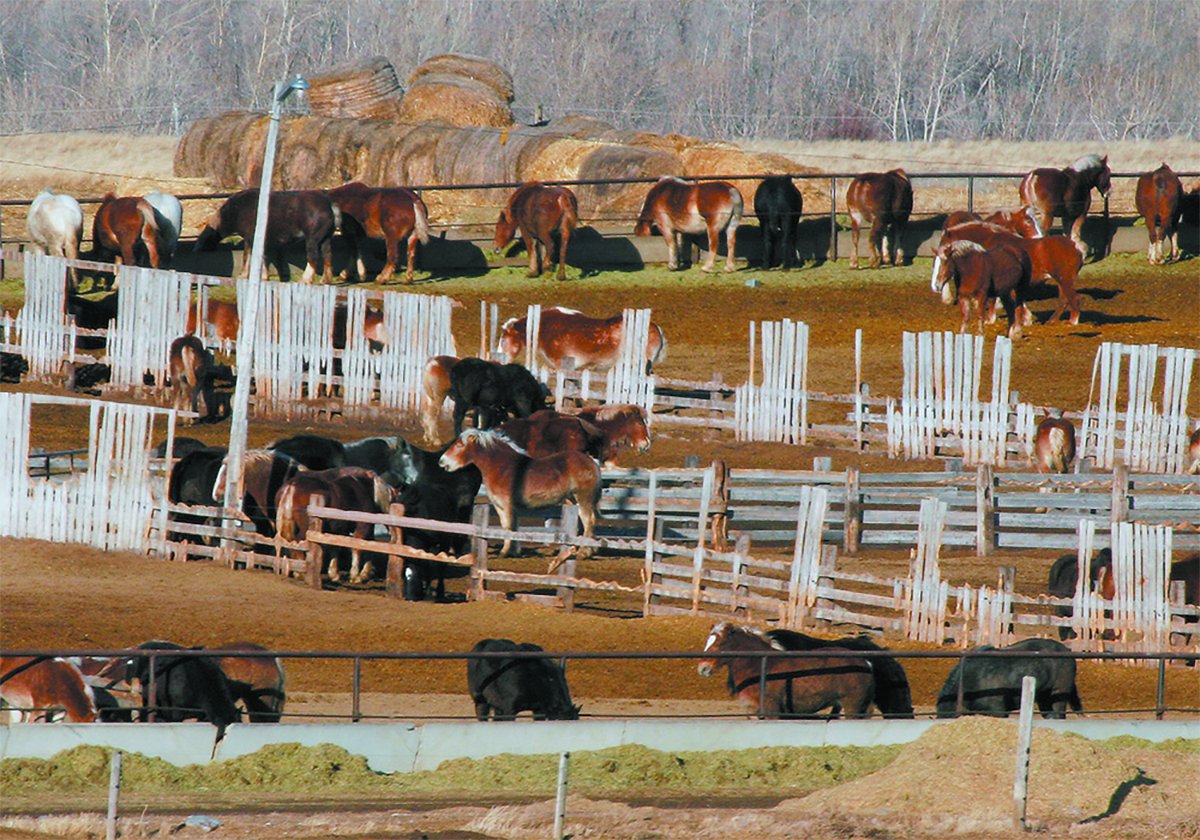The brightest spot in the Canadian beef industry may be on Ron and Rose Hoyda’s purebred cattle ranch near Sherwood Park, Alta.
The Hoydas sold a fullblood polled Limousin bull named Crown Royal for $85,000 US at a major Limousin sale in Fort Worth, Texas, on April 26. Just under two years of age, the Alberta-raised bull earned the highest selling price this year in North America.
Lenape Limousin of Philadelphia, Pennsylvania, acquired full possession and half semen rights.
The bull had travelled to Texas in February and semen has already been drawn.
Read Also

Canada’s slaughter horse industry lacks transparency
The lack of clear reporting and public access to data keeps the industry largely hidden, leaving questions about humane treatment and traceability unanswered.
The bull was its mother’s first natural calf. Last year, an embryo transplant daughter sold in Calgary for $21,000.
“She’s raised some expensive calves for us,” said Ron Hoyda.
The cow remains in the Hoydas’ herd.
Another bull from their herd sold for $55,000 for a half interest last year. Semen from that bull has been sold throughout North America, South America and Australia.
The Hoydas started 1-Way Cattle Corp. five years ago and decided their herd would contain French-only genetics.
“There’s a lot of purebreds out there, but we decided we would go for fullbloods,” Hoyda said.
They have strived to breed for red, polled animals. Naturally polled Limousin are uncommon within the breed.
The Hoydas have 310 cow-calf pairs, of which 160 cows are fullblood Limousin.
A large part of their operation is dedicated to selling beef genetics. When bovine spongiform encephalopathy was diagnosed in a single Alberta cow two weeks ago, their semen and embryo sales halted.
“About $100,000 worth of semen and embryos are sitting and waiting to go,” Hoyda said.
As of May 28, most countries have agreed to accept Canadian cattle embryos but not semen, said the Canadian Beef Breeds Council. The United States and the European Union are accepting embryos and semen, while Australia, Malaysia, Indonesia and South Korea refuse to accept either.

















